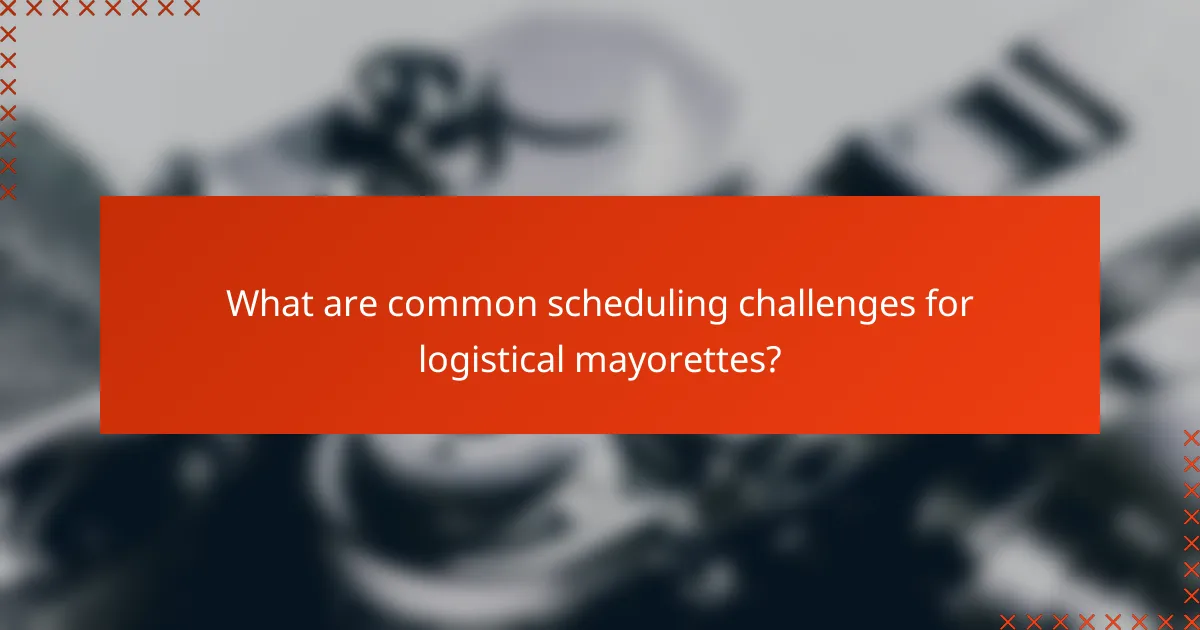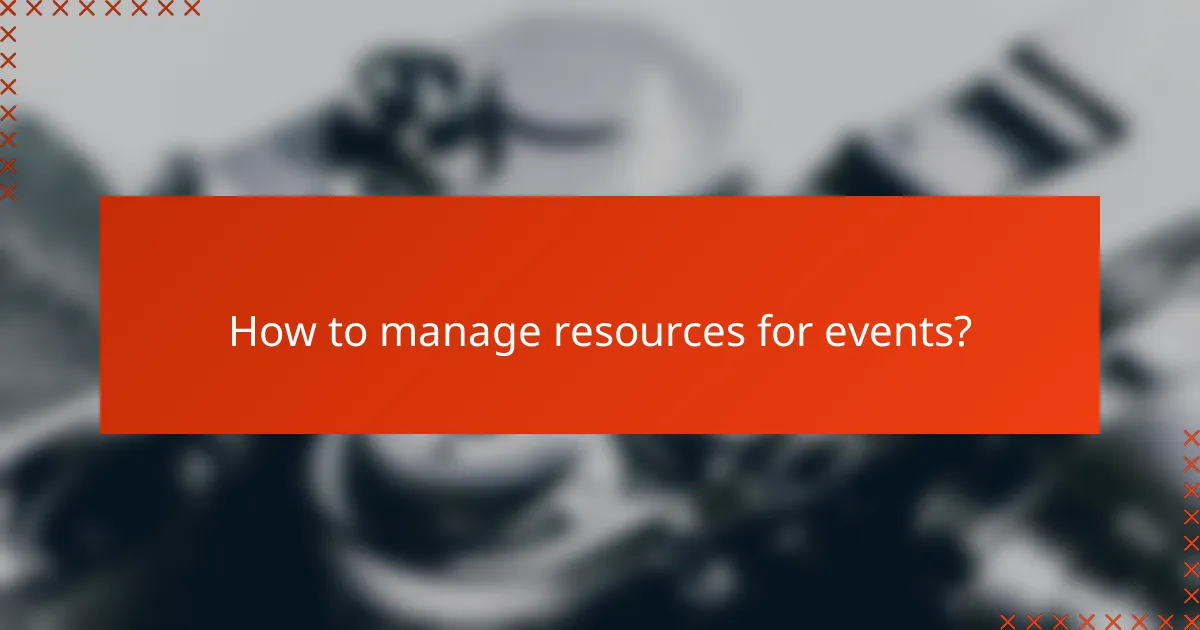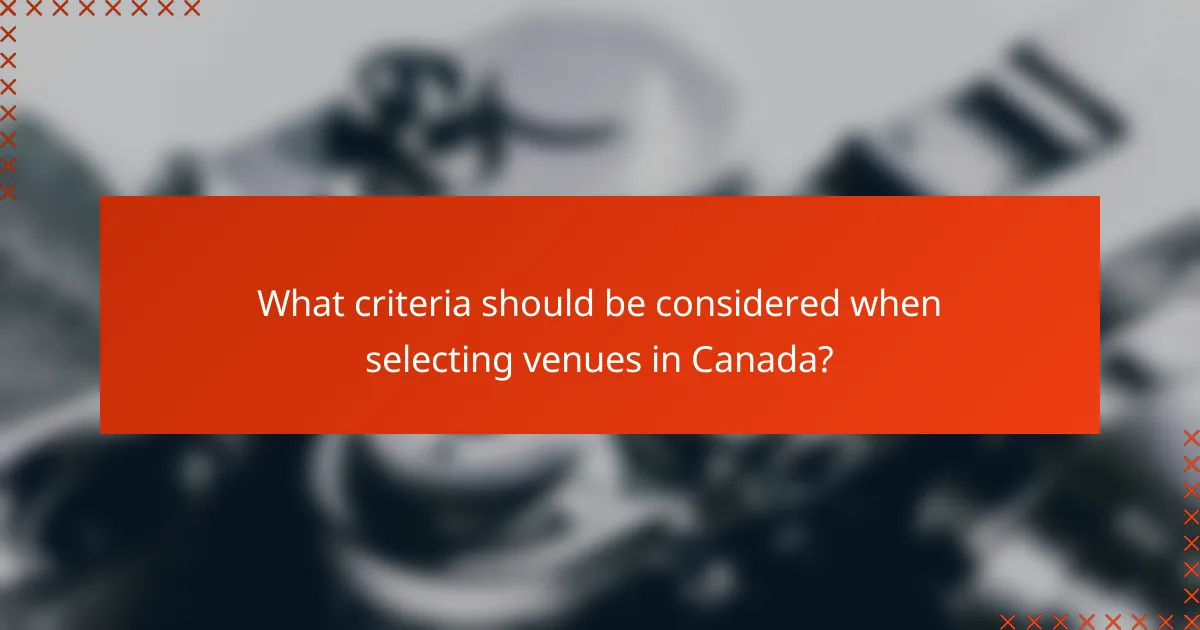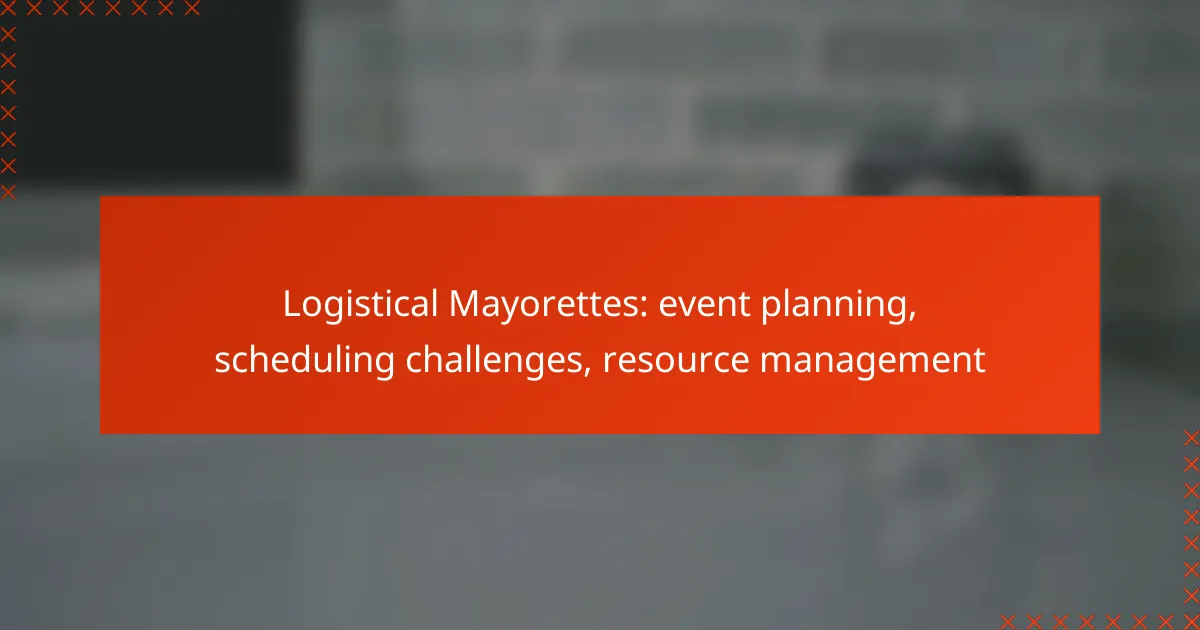Logistical mayorettes play a crucial role in event planning by navigating the complexities of scheduling, resource management, and coordination. They must adeptly handle challenges such as vendor conflicts, unexpected changes, and environmental factors to ensure events proceed seamlessly. By leveraging technology and local partnerships, they can optimize logistics and enhance the overall experience for attendees.

How to effectively plan events in Canada?
Effective event planning in Canada involves careful coordination of logistics, resources, and timelines to ensure a successful outcome. Key considerations include utilizing technology, engaging local suppliers, and establishing clear schedules to manage challenges efficiently.
Utilize event management software
Event management software can streamline the planning process by centralizing tasks, schedules, and communications. Tools like Eventbrite or Cvent allow planners to manage registrations, track budgets, and coordinate logistics in one platform.
When selecting software, consider features such as mobile accessibility, integration with other tools, and user-friendliness. Many platforms offer free trials, so testing a few options can help identify the best fit for your event needs.
Engage local vendors
Working with local vendors can enhance your event’s authenticity and support the community. Local caterers, decorators, and entertainment providers often have valuable insights into regional preferences and can help create a more personalized experience.
Establishing relationships with vendors early can lead to better pricing and availability. Consider creating a shortlist of reliable local suppliers and reaching out to them well in advance to secure their services.
Establish clear timelines
Creating a detailed timeline is crucial for effective event planning. Start by outlining major milestones, such as venue booking, vendor contracts, and promotional activities, and assign deadlines to each task.
Regularly review and adjust the timeline as needed to accommodate any changes. Using project management tools can help keep everyone on track and ensure that all aspects of the event are completed on time.

What are common scheduling challenges for logistical mayorettes?
Logistical mayorettes often face scheduling challenges that can complicate event planning. Key issues include conflicting vendor availability, last-minute changes, and weather-related disruptions, each requiring careful management to ensure successful events.
Conflicting vendor availability
One major challenge is conflicting vendor availability, which can lead to delays or compromises in event quality. When multiple vendors are needed, their schedules must align, which can be difficult, especially during peak seasons.
To mitigate this, maintain a list of preferred vendors and their availability. Consider booking vendors well in advance and having backup options ready to avoid last-minute scrambles.
Last-minute changes
Last-minute changes can arise from various sources, such as unexpected guest counts or venue issues. These changes can disrupt the entire event schedule, requiring quick adjustments to maintain flow.
Establish a flexible plan that allows for adjustments. Communicate clearly with all team members and vendors to ensure everyone is aware of potential changes and can adapt accordingly.
Weather-related disruptions
Weather-related disruptions pose a significant risk, especially for outdoor events. Rain, wind, or extreme temperatures can necessitate changes in venue or logistics, impacting the overall schedule.
To prepare, always have a contingency plan that includes alternative venues or indoor options. Monitor weather forecasts closely leading up to the event and communicate any changes promptly to all stakeholders.

How to manage resources for events?
Managing resources for events involves careful planning and coordination of finances, personnel, and equipment. Effective resource management ensures that events run smoothly, stay within budget, and meet attendee expectations.
Budget allocation strategies
Budget allocation is crucial for successful event management. Start by determining the total budget and then categorize expenses into key areas such as venue, catering, staffing, and marketing. Allocate funds based on priority, ensuring essential elements receive adequate resources.
Consider using a percentage-based approach, where specific categories receive a set portion of the total budget. For example, you might allocate 30% for venue costs, 25% for catering, and 20% for staffing. This helps maintain balance and control over spending.
Staffing requirements
Identifying staffing requirements is essential for event execution. Assess the event’s scale and complexity to determine the number of staff needed. For smaller events, a few key roles may suffice, while larger gatherings might require a full team, including coordinators, volunteers, and security personnel.
It’s beneficial to create a staffing plan that outlines roles, responsibilities, and shifts. Ensure that staff members are trained and briefed on their tasks to avoid confusion on the event day. Regular communication and clear expectations can enhance team performance.
Equipment inventory management
Effective equipment inventory management ensures that all necessary items are available for the event. Start by creating a comprehensive list of required equipment, including audio-visual gear, seating, and staging materials. This list should be based on the event’s specific needs.
Establish a system for tracking inventory, such as a spreadsheet or inventory management software. Regularly check equipment condition and availability, and arrange for rentals well in advance to avoid last-minute issues. Consider having backup equipment on hand to address any unforeseen problems during the event.

What criteria should be considered when selecting venues in Canada?
When selecting venues in Canada, key criteria include accessibility for attendees, capacity and layout, and location with parking options. Each of these factors plays a crucial role in ensuring a successful event that meets the needs of all participants.
Accessibility for attendees
Accessibility is vital for ensuring all attendees can participate fully in an event. Consider venues that comply with the Accessibility for Ontarians with Disabilities Act (AODA) or similar regulations in other provinces, which mandate features like ramps, elevators, and accessible restrooms.
Evaluate the venue’s proximity to public transport and the availability of services for individuals with disabilities. A venue that is easy to navigate and has clear signage can significantly enhance the experience for all guests.
Capacity and layout
Understanding the capacity and layout of a venue is essential for accommodating your expected number of attendees comfortably. Ensure the space can handle your guest list while allowing for movement and interaction, typically requiring a minimum of 10-15 square feet per person for standing events.
Consider the layout options, such as theater, classroom, or banquet styles, depending on the nature of your event. A flexible space that can be reconfigured is often advantageous for different activities throughout the event.
Location and parking options
The location of your venue can greatly influence attendance. Choose a site that is centrally located and easily accessible to your target audience, ideally within a short distance from major highways or public transit hubs.
Evaluate parking availability, including the number of spaces and any associated costs. Venues with free or ample parking are often more attractive to attendees, reducing the likelihood of transportation-related issues on the event day.

How to ensure effective communication during event planning?
Effective communication during event planning is crucial for coordinating tasks, managing resources, and ensuring that all team members are aligned. Establishing clear channels and protocols can significantly enhance collaboration and minimize misunderstandings.
Regular team meetings
Regular team meetings are essential for maintaining open lines of communication among all participants involved in event planning. These meetings can be held weekly or bi-weekly, depending on the project’s complexity and timeline. Use these sessions to discuss progress, address challenges, and adjust plans as necessary.
To maximize productivity, set a clear agenda for each meeting and encourage team members to come prepared with updates. This practice helps keep discussions focused and ensures that all relevant topics are covered efficiently.
Utilization of project management tools
Project management tools streamline communication by providing a centralized platform for sharing information, tracking progress, and assigning tasks. Popular tools like Trello, Asana, or Monday.com allow teams to visualize project timelines and responsibilities, which can enhance accountability.
When selecting a tool, consider factors such as ease of use, integration with other software, and the ability to customize workflows. Regularly updating the tool with current information ensures that all team members have access to the latest details, reducing the chances of miscommunication.



